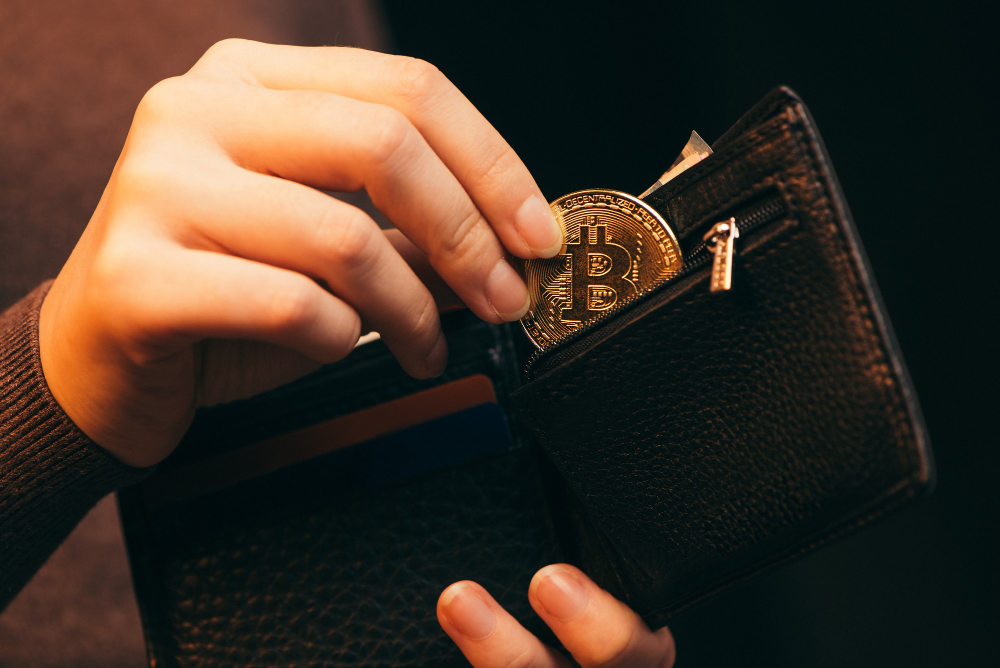Bitcoin wallet encryption is the key to securing your digital fortune. In a world where cyber threats are rampant, encrypting your Bitcoin wallet ensures your assets remain safe from prying eyes. Dive into the world of encryption, where we unravel the secrets behind safeguarding your cryptocurrency and explore the advanced techniques that keep your Bitcoin out of reach from hackers. Understanding Bitcoin wallet encryption becomes clearer just Visit https://apex-revolution.com connects traders with educational experts who specialize in this area.

Post Contents
The Basics of Bitcoin Wallet Encryption
Bitcoin wallet encryption is essential for protecting your digital assets. At its core, encryption is the process of converting information into a code to prevent unauthorized access. Think of it like locking your valuable possessions in a safe. Only those with the correct key can access the contents.
In the case of Bitcoin wallets, encryption involves securing the private keys, which are the passwords that allow you to access and manage your Bitcoin. Without encryption, anyone who gains access to your private keys can steal your Bitcoins. This makes encryption not just a good practice, but a necessity in the world of digital currencies.
Wallet encryption uses complex algorithms to create a secure environment for your private keys. These algorithms make it incredibly difficult for hackers to decipher your keys, even if they intercept them. It’s like turning your safe into a vault with layers of security measures.
Moreover, encrypted wallets require a password to decrypt the private keys. This adds an extra layer of security. Even if someone steals your encrypted wallet, they can’t access your Bitcoin without the password.
Types of Bitcoin Wallet Encryption
Bitcoin wallet encryption can be divided into different types based on the methods used to secure the data. Two main categories are symmetric and asymmetric encryption. Symmetric encryption uses the same key for both encryption and decryption. This method is fast and efficient but requires both parties to securely exchange the key. Think of it like a single key that locks and unlocks a door.
On the other hand, asymmetric encryption uses a pair of keys – a public key for encryption and a private key for decryption. This is more secure as the private key is never shared. It’s like having a mailbox where anyone can drop a letter (using the public key), but only you can open the mailbox to read the letter (using the private key).
Another distinction is between hardware and software wallets. Hardware wallets are physical devices that store your private keys offline, providing strong protection against online threats. They are like safes you can carry with you. Software wallets, however, are applications or programs that store your keys on your computer or mobile device. They are more convenient but potentially vulnerable to malware and hacking.
Furthermore, different Bitcoin wallets might use various encryption algorithms. Common algorithms include AES (Advanced Encryption Standard) and RSA (Rivest-Shamir-Adleman). Each has its strengths and is chosen based on the security needs and computational power available.
Setting Up Encrypted Bitcoin Wallets
Setting up an encrypted Bitcoin wallet is a crucial step in safeguarding your digital assets. The process begins with selecting a reputable wallet provider. Look for one with strong security features and good user reviews. Next, download and install the wallet software or purchase a hardware wallet from a trusted source.
Once your wallet is ready, the first step is to generate a private key. This key is the heart of your wallet’s security. It’s crucial to create a strong, unique password that will be used to encrypt this key. Avoid simple passwords and consider using a password manager to generate and store a complex password.
After setting your password, the wallet will encrypt your private key using advanced algorithms. This ensures that even if someone gains access to your device, they cannot access your Bitcoins without the password. It’s like adding a layer of protection that requires a special code to unlock.
Don’t forget to back up your wallet. Most wallets provide a seed phrase – a series of words that can be used to recover your wallet if you lose access. Write this phrase down and store it in a secure place, away from your computer. Think of it as a spare key to your safe, hidden in a secret location.
Enhancing Security: Advanced Encryption Techniques
As Bitcoin’s value grows, so does the sophistication of attacks on wallets. This makes advanced encryption techniques essential for enhancing security. One effective method is the use of multi-signature (MultiSig) wallets. These wallets require multiple private keys to authorize a transaction. It’s like needing multiple people to sign off before opening a vault. This reduces the risk of theft, as a single compromised key isn’t enough to access your funds.
Cold storage solutions are another advanced technique. These involve keeping your private keys offline, away from internet threats. Hardware wallets and paper wallets are common cold storage methods. By isolating your keys from online access, you significantly reduce the risk of hacking.
Biometric authentication is also gaining traction. Using fingerprints or facial recognition adds a physical layer of security that’s hard to replicate. It’s like adding a fingerprint scanner to your safe, ensuring only you can open it.
Additionally, combining these techniques can provide even greater security. For example, using a MultiSig wallet with keys stored in both hardware and software wallets, along with biometric authentication, creates multiple layers of protection.
Conclusion
Securing your Bitcoin with wallet encryption is not just a good practice—it’s essential. By understanding and implementing robust encryption methods, you protect your digital wealth from threats. Stay ahead of cybercriminals by keeping your wallet’s security top-notch, ensuring your Bitcoin remains safe and sound for the future.